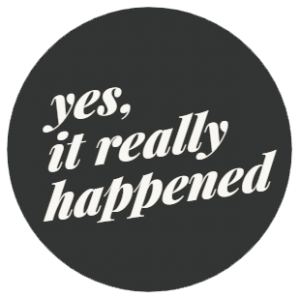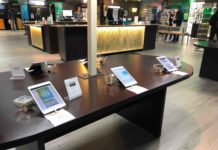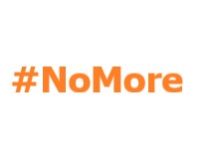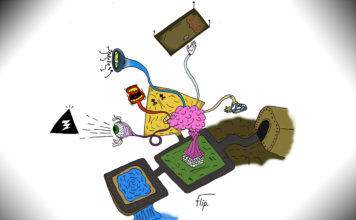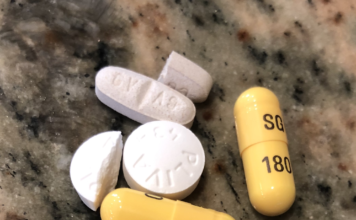
I recently attended the TedWomen conference, and I am so excited to tell you all about it.
First, you must understand, I am a conference junkie. I love the energy, the gatherings, the shared purpose of people wanting to learn, and I spend an embarrassing amount of time considering the perfect notebook for my note-taking and absorbing. I’m old school – totally believing in the handwriting / brain connection – I learn things differently that way than taking notes on my laptop. If I’ve written it down, chances are I’m gonna remember it.
So when I saw that the famous TedTalk folks were going to be hosting a TedWomen conference – and that it just happened to be in Palm Springs, California the last week of November (which is not my home state of New Jersey’s finest time of year for weather), I thought, huh, I think I want to do that. What better place to connect and research my latest book about the end of the world (where only women survive) than a TedWomen conference? I’ve taken to looking at every problem in the world in a different light – what would this look like if only women were making the decisions? Do we solve climate change? Do we solve food insecurity? Am I writing a dystopian or utopian fiction? I politely informed my hubby that this TedWomen thing was important to me, blocked it on his calendar, and then (with my best puppy dog eyes) asked my mom to be on duty for my kids (and furry dogs). I am lucky to have supportive and loving people who want me to do things for myself. I was going to invest in myself and my book and my passion for learning.
And then November was National Novel Writing Month and I had this grand idea that I’d follow their online non-profit group and writing schedule – with a monthly target of 50,000 words. In case you are wondering, mathematically that is almost 1700 words a day, every day, which in case you are still wondering, is really almost a billion words a day, every day. On a good day I write 500 words. On a great day I write 1000. The first half of November I kept up with 1700 a day. And then I started hating my book, hating writing, hating the people (and dogs) in my house who wanted my attention and decided maybe I should stop trying to sprint-write every day and take it down a notch. Slow and steady wins the race, right?
Then I hosted Thanksgiving for 39 people (and nope, that’s not the most we’ve ever hosted), and then I started to pack and get myself in order for my trip, and I started thinking about how all my pants make my hips look fat, and how I better get everything ready for the entire week for my people before I go. I stocked the fridge and pantry with groceries and the freezer with vegetables that no one will eat. I did 6 loads of laundry to make sure everyone had clean underwear and school clothes and fresh towels. I wrote out the schedule for the week on our chalkboard paint wall. I made a sticky note with the different vitamins the kids take each day.
Know what the hubby does when he goes on a business trip? Packs his toothbrush and business cards and walks out the door. Even in the midst of getting ready for a conference about women empowerment, I am still focused on very different roles in my life, for better or for worse. No one asked me to do any of that by the way; these are the things I do to my own self to somehow justify anything remotely self-serving. I am a self-induced Cinderella, “Sure you can go to TedWomen in Palm Springs, and sure you can write a book, you just need to do all these chores first.”
The trip to California is never as easy as I think it should be. I left my house in NJ at 9:45 a.m. and rolled into the hotel lobby in Palm Springs at 7:45 p.m. With the time change I had been traveling for 14 (million) hours. My grand idea of taking just a direct flight to LAX and then driving what should have been 2 ½ hours turned out to be a plan of suckiness, as the ride actually took 4 ½ hours, and included me finishing the night thru mountains and desert and darkness. At one point I was trying to figure out the Waze directions and look for signs in the (really freaking dark) desert and was literally asking myself out loud “What am I DOING here?” It would have been easier to stay home and watch some videos online. I mean that’s what’s cool about TedTalks right? Anyone can learn from the videos? What’s so special about being there in person? Please allow me to explain that to you…as my wandering through the desert was actually worth it.
TedWomen is a unique conference in that you don’t entirely know what you are going to get when you walk into the theater (or the simulcast lounge, if you want to bring your tech with you, as the theater is a tech/screen-free zone). I am a huge fan of women conferences – Association of Junior League International conferences were such a fantastic experience that I attended nearly a dozen over the years, some to learn, some to present and teach. I loved learning everything possible to make myself a skilled and dedicated nonprofit board member and strategic thinker, and it’s part of the reason I helped create a nonprofit board training program in New Jersey called Get On Board. But for those conferences, I knew what I was going to get ahead of time – nonprofit board development and voluntarism training. I also like that AJLI changes the men’s room signs into women’s rooms so we don’t have to wait so long. But TedWomen? Sure there’s the whole women theme going on, but that’s a pretty big topic. You don’t really know what you’re going to hear until you’re sitting there listening. Everyone around you just wants to learn. Going to a TedWomen conference is sort of like going to an amazing restaurant with a bunch of foodies and ordering the Chef’s tasting menu. “Show me what you can do with food,” is one of my favorite things to say and experience. “Show me what you can teach me, open my eyes to, make me THINK,” is sort of how I felt about TedWomen.
So what did I learn? I learned from Suzanne Lee, a fashion designer / BioScientist about how you can make building materials and insulation out of mushrooms, and fabric for clothing and shoes out of algae blooms from waters suffering imbalance. I learned from climate change expert Katharine Wilkinson about how gender equity can help save our planet. I learned from activist Dolores Huerta about how apathy is largely due to people being so loaded down with their own issues that they have a hard time making room for the bigger problems in our world. I learned from roboticist Ayanna Howard and tech leader Nivruti Rai about AI and collective intelligence and I learned from social justice scholar Monique Morris who looks at education as freedom work, and the opportunities meditation offers instead over detention and discipline. I learned from epigeneticist and structural biologist Karissa Sanbonmatsu about how our DNA makes memory by making knots, and that I have some catching up to do since high school biology informed me that we are either XX or XY designated. Genital sex is determined in the first trimester, but brain gender isn’t decided upon until the second trimester. Sometimes those match. Sometimes they do not. Welcome to science. I learned from Emily Quinn that there’s a whole world and spectrum of mosaic gender definition based in actual science that defies our societal definitions. I also learned from artists – from visual artist Amanda Williams about theories of color, from poet activist Aja Monet and organizer Phillip Agnew about how art and organizing is an answer to anxiety and anger, and from spoken word artists Climbing PoeTree about how creativity is an antidote to destruction. I learned from women’s rights activist Shad Begum about how women in Pakistan elected to office first had to sit in a separate room from the government council they had been elected to, just because they were women. And I learned from humanitarian warrior and fire chief Jan Rader about the mental health issues facing first responders now that the opioid crisis is everywhere. Firefighters used to be welcomed and given unending gratitude for saving lives and families and pets and houses. Now substance use disorder and overdose calls are a regular part of first responder life, and that is a very sad and real part of the job. No one feels saved. No one feels gratitude. Caring for our first responders is a very real part of the job now too. I learned from urban landscape architect Kotchakorn Voraakhom about international landscape architecture in sea-level sinking cities, and how creating parklands that can store a million gallons of water in the rainy season are part of the solution, and that creating stationary bikes for kids to use as playground equipment can also help create the power to filter the standing water. I learned from business executive and author Carla Harris about the importance of champions – and who is going to bang the table for you in the room behind closed doors, and how important it is when you get that seat at the table to make sure you are spending your own currency to bring others in behind you. I learned from Afro-Latina researcher and curator Ariana Curtis about museum curating bias, and how important representation is to telling our history – and herstory. I learned from Majd Mashhawari, an 25-year-old engineer and entrepreneur from Gaza who, after 150 failed attempts, managed to create a new building material from ash and rubble – because those were the main materials she had to work with in her homeland. I learned from author and journalist Soraya Chemaly about productive anger, and how we women are told in all “flavors” that anger is not attractive, whether we are called a Spicy Latina, an Angry Black Woman, a Sad Asian Woman, or a Crazy White Woman. Our anger is met with mockery.
52 speakers. Three days. My brain is full. Apparently this is called a “TED-ache”. I agree.
TedWomen offers speaker meetups, book signings, and space to find these incredibly smart people more organically as well. I was waiting for coffee at 6 a.m. one morning and chatted with Helen Marriage, a maverick producer from the UK, about how important public art is for public discussion and healing. I sat for dinner that night with Eldra Jackson III, who spent two decades of his life in prison, and transformed from someone mocking reflection circles he once deemed “hug a thug”. He is now dedicated to reform work centered on helping men understand that toxic masculinity is a disease that needs curing. To the best of my knowledge, this is the first time I have ever had dinner with someone who spent time in prison. Eldra asked the nine women at our table a research question – what is it that women want? What should he tell his boys back in prison to help them understand women? One of my dinner mates nearly swooned and asked if he’d like to go spoon in the corner. We laughed, but truly, how often does anyone ask women what they want? Maybe that’s just the starting point.
But that was just what I learned from the speakers who were presenting on stage. All around me I met other women (and a of couple men too) and learned from them as well. There’s so much to learn from each other – especially in a curated audience of people who love to learn. In line for the bathroom or food, coffee in the morning, wine at dinner, it’s meeting the other amazing people who also want to be present, who want to talk about what we just heard, who share insights and ideas and appreciation for learning something new.
Who did I meet? A salon owner and a sex therapist, who realized that their clients probably tell them a lot of the same kinds of stories, and how important it is after hearing people’s sadness and worries and anxieties and fears to still be able to shake it off at the end of the day so it doesn’t all come home with you, stay with you, live in you. I met women farmers and business owners, life coaches, researchers, doctors, writers, scientists, engineers, marketing and branding professionals, nonprofit leaders, educators, artists, activists, artivists (artists who are activists – this might be my new favorite job title), sustainable travel experts, diversity and inclusion human resource managers and advocate attorneys (thank you Gloria for sharing the ride back from Palm Springs to LAX and for sharing your story about where you began in East LA and the work you do now to advocate for the displaced and underserved immigrants in Minnesota. Yes. I offered a ride to a “stranger”. It worked out well). I also met a bunch of TedX organizers, who are the amazing volunteers who bring Ted to their local communities so that everyone can learn. Just like that Ratatouille movie – where that slightly disturbing fat Italian ghost chef reminds the world that everyone can cook, even a little cute rat named Remy. What I see from TedWomen? Everyone. Can. Learn.
I learned a lot. Including the idea that we women need to stop waiting for the right time, or for our kids to be the right age, or to just learn a little more or be trained a little better or for Mars and Venus to align. The time is now. As activiist Cecile Richards said in her talk, “Don’t wait for instructions. If you see a problem you’re the one to fix it.” We need to do a better job believing in ourselves. Learn as you go. Learn, and move forward.
I came home exhausted, exhilarated, and energized. And then I saw the eight loads of laundry my family made while I was gone. I paused for a moment, and then announced that starting immediately, everyone living in my house is responsible for two loads of laundry per week. It doesn’t have to be your own clothes or sheets and towels – just any clothes or sheets or towels – two loads. Every week. No excuses. My 15-year-old son finished his two loads of laundry during the next 24 hours. It was not without griping and aggravation, but that’s a different discussion.
My daughter had no complaint about doing laundry. I looked at her, and then looked my husband who was packing and getting ready to leave for Brazil for some important multi-million dollar something or other. “Lovey,” I said to my 12-year-old daughter, who is full of hope and potential and my inspiration for all things. “You are now the Chief Laundry Officer for our house. You get to tell dad he has to do a load of laundry before he leaves”. My daughter was jubilant. She had a title – and power. And in that moment I empowered her to tell a man to do laundry. She bossed him around a bit, laughing at his lack of knowledge in laundry minutiae, and she stood next to him and watched him do a load of laundry, because she asked him to.
Did I solve the problem of women doing an average of four more hours per week of housework than men – more than 200 hours per year? No(t yet). Will one day the mental burden and emotional burden of the work inside the home also be equitable, so that men think of it just as much as women? I hope so. For now, getting my people to do this small part? It evens our playing field, establishes equity, distributes power. Is it a weird thing to create as a take-away from a TedWomen conference? Probably. But I’m good with that. Because this (first) step provides more time for me to work on my book – whether it’s space and time for actually writing, or just the freedom to find time to think about something other than the mundane. I’m sure in my book with my version of utopia people will be helping more with chores in an equitable, nonsexist, non-gender-conforming way. Isn’t it also time to put some utopia into practice in my real life too? How can we work on the big world problems if we can’t work together to get the simplest things done too? I think we have room for both.
Everyone. Can. Learn.
Onwards!
